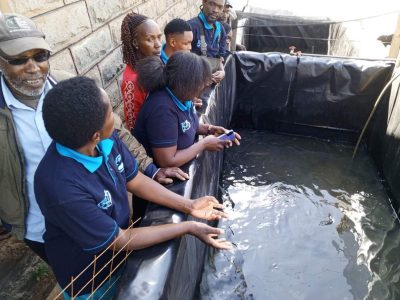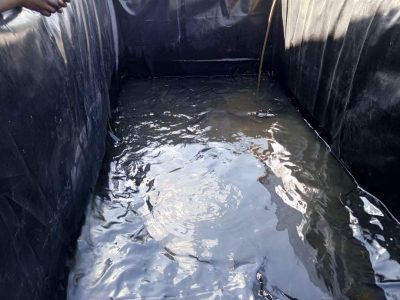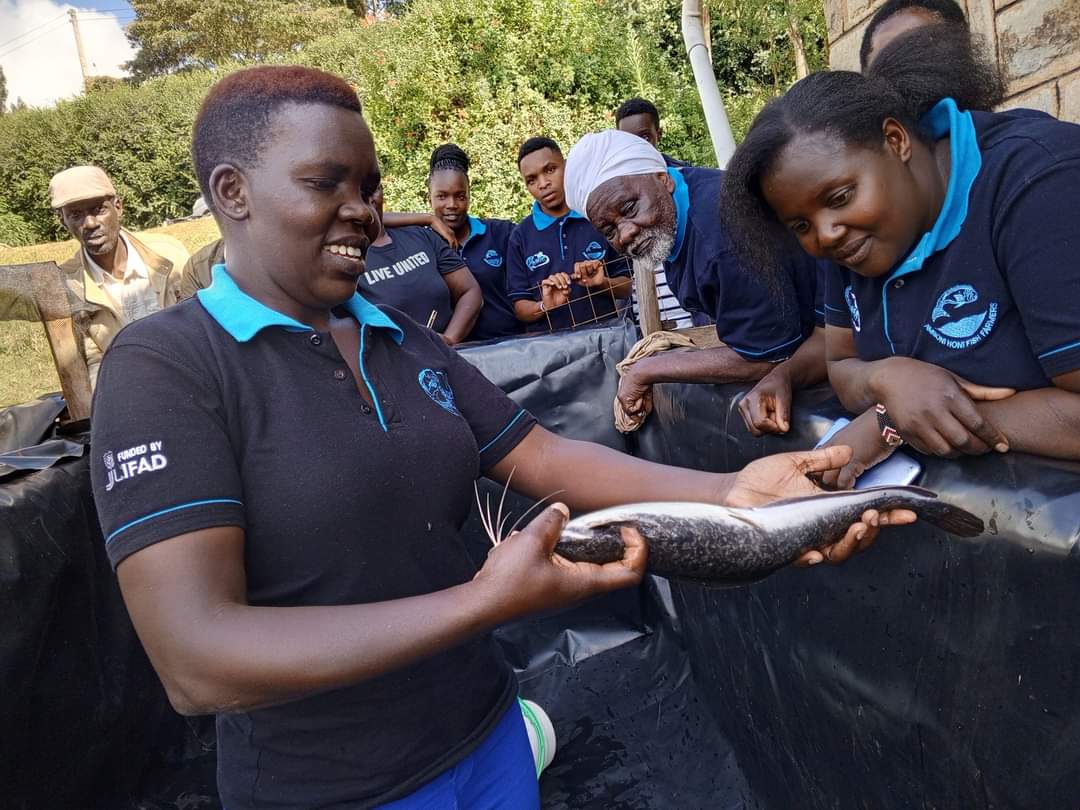Thriving Against the Odds: Transforming Aquaculture in Semi-Arid Lands. As climate change continues to impact the livelihoods of many, farmers in K
Thriving Against the Odds: Transforming Aquaculture in Semi-Arid Lands.
As climate change continues to impact the livelihoods of many, farmers in Kieni are finding new hope by venturing into fish farming for both sustenance and income.
On a recent Friday afternoon, more than 50 farmers gathered with bright smiles at the homestead of one of their own to witness the harvesting of tens of catfish from a pond on the compound.
With excitement in the air, Nderitu Wahome skillfully caught each fish, prompting cheers from the farmers who understood the significance of each catch for their livelihoods.
For the past four years, farmers in Amboni, Mweiga, Nyeri County, have embraced fish farming, thanks to the introduction of the practice through the Aquaculture Business Development Program (ABDP).
Fish farming has provided these farmers with a lifeline, diversifying their income away from traditional rain-fed agriculture.
Amboni, located in Kieni constituency, is classified as semi-arid, and its residents occasionally rely on government relief food to survive.
With the introduction of aquaculture, farmers like Wahome found new opportunities to support themselves financially.
Wahome had previously attempted fish farming at home but struggled due to lack of skills. The program taught him the best practices and suitable fish varieties for their cold climate. He is now producing over 600 kilos in a single harvest.
Amboni-Honi Fish Farmers group’s chairlady Ann Mwangi reflects on how their lives have transformed since they began fish farming.
Previously reliant on unreliable horticulture due to water shortages, they often struggled to meet basic needs. Now, with aquaculture, their situation has improved significantly.
The success of fish farming has also drawn in younger villagers like Stella Wanjiru, who at 27 with a diploma in food and beverage production, saw an opportunity in fish value addition.
Inspired by her elders’ efforts, Wanjiru began buying fish from farmers and selling cooked fish, capitalizing on local demand.
Initially, villagers hesitated to prepare fish due to cultural norms, but Wangari’s initiative bridged this gap.
By buying fish at Sh. 500 per kg and selling it at Sh. 1000 after value addition, Wangari not only found financial success but also fulfilled her dream of starting an outside catering business.


According to Lydiah Gateru, who is the Kieni West Fisheries officer, the program has supported 390 farmers in the area, who collectively manage 450 fish ponds.
She says that most of these farmers now yield over 100 kilos per single harvest each, thanks to the program’s assistance.
The programme supplies pond liners, fingerlings, and fish feeds, along with providing comprehensive fish rearing education.
Ms. Gateru emphasizes that this initiative is revolutionary, significantly improving the livelihoods of participating farmers as they embrace aquaculture as a profitable venture.
She adds that efforts are underway to expand the program further by reaching out to more farmers organized into small aquaculture groups.
Ms. Gateru anticipates that an additional 100 farmers will soon join the program after receiving essential training and support.


COMMENTS